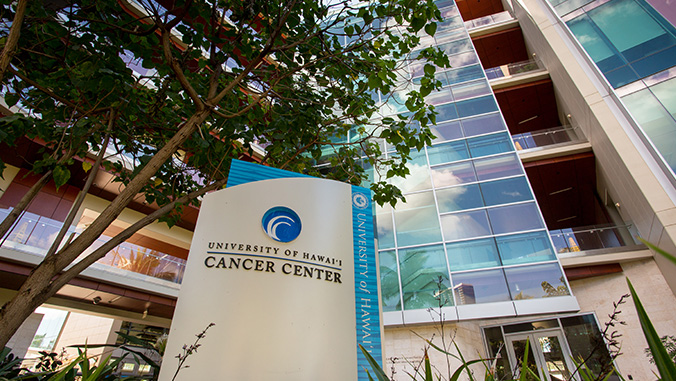
In Hawaiʻi, Native Hawaiian cancer patients have a two-fold increased risk of dying from sepsis, a life-threatening immune response to an infection, compared to other ethnicities, according to a new study co-authored by University of Hawaiʻi Cancer Center researchers. The study aimed to determine the role of genetics in the survival of colorectal cancer patients with sepsis, and was published in Scientific Reports. In the U.S., more than 8.5% of cancer patients die from sepsis each year.
Researchers found that Native Hawaiian colorectal cancer patients who died from sepsis had an average survival rate of five months as compared to Japanese colorectal cancer patients who had an average survival rate of 117 months. The study also identified key genes involved in sepsis response were expressed differently in Native Hawaiians and Japanese.
The UH Cancer Center research team includes Natalija Glibetic, Yurii Shvetsov, Karolina Peplowska, Brenda Y. Hernandez and Michelle L. Matter.
Cancer patients are highly susceptible to developing sepsis because of their depressed immune systems from cancer treatments. Due to variations in individual genetic responses to sepsis, developing sepsis-specific therapies are difficult and there are currently no treatment options. This research aids in the identification of ethnic subgroups that may respond differently to treatment options.
"Today there is no method to identify which colorectal cancer patients are highly susceptible to dying from sepsis," said Matter. "This research is the first to provide insight into the ethnic diversity in gene changes in response to cancer-associated sepsis, which may help identify patients more prone to developing sepsis."
Findings from this study will lead to the development of personalized approaches to cancer-associated sepsis care and prevention measures, and may help identify and lead to faster treatment of patients with varying risks of dying from sepsis.






